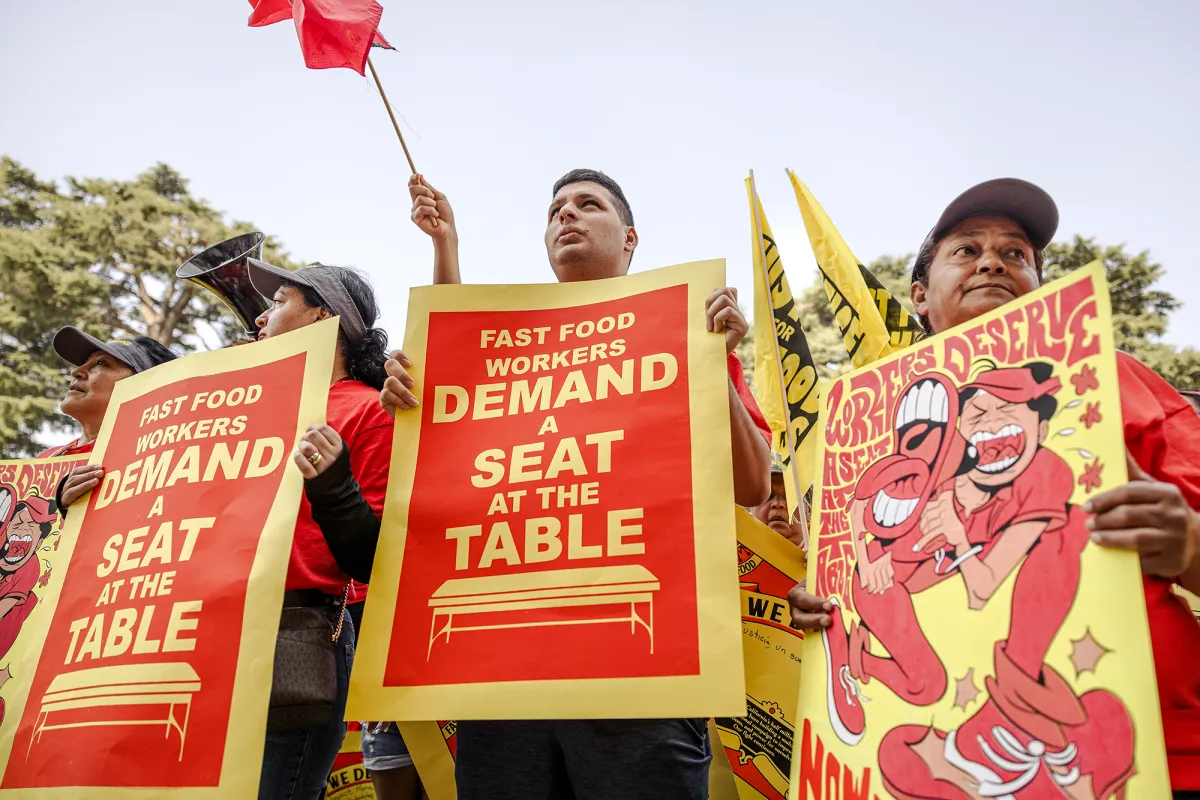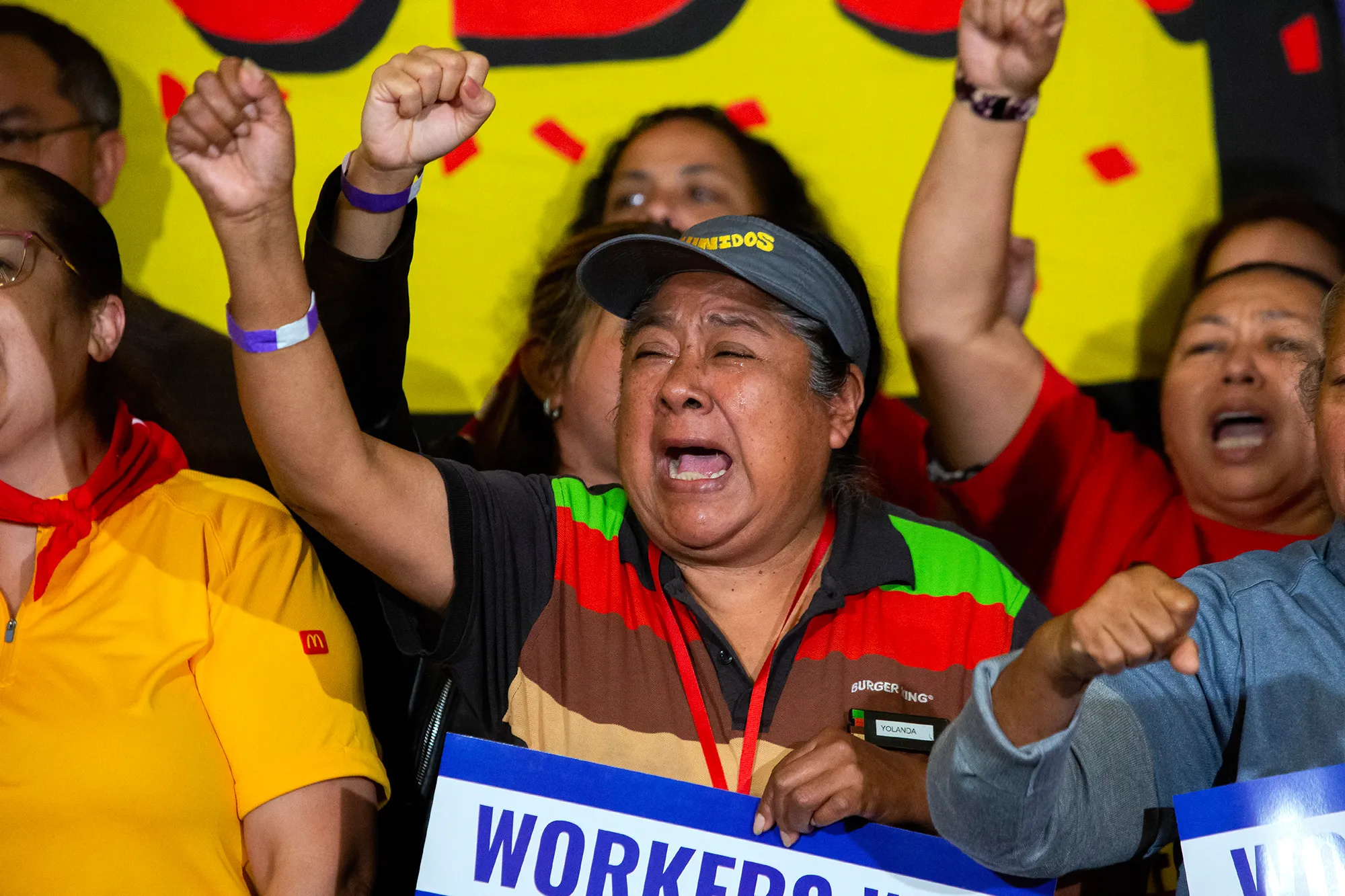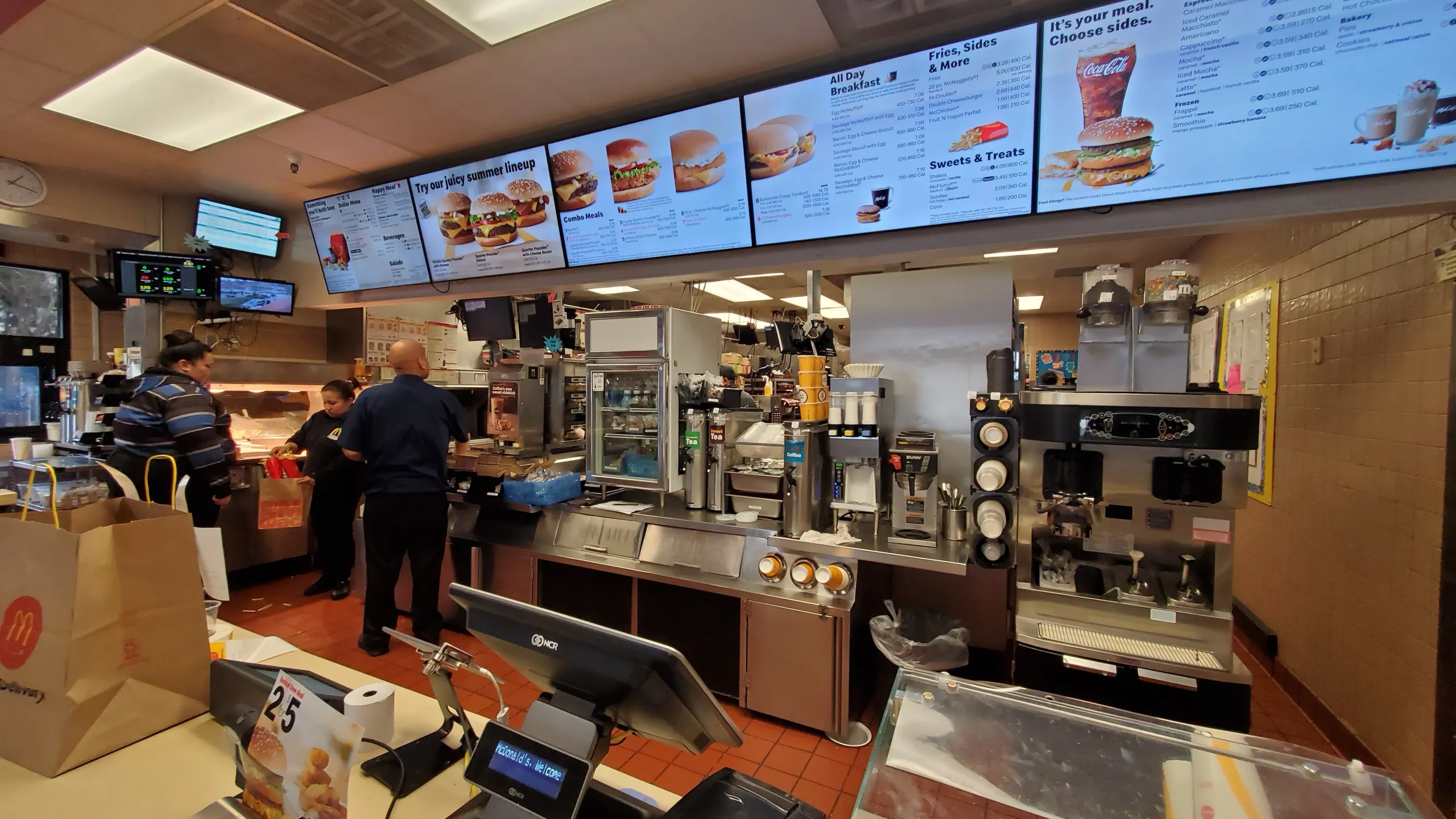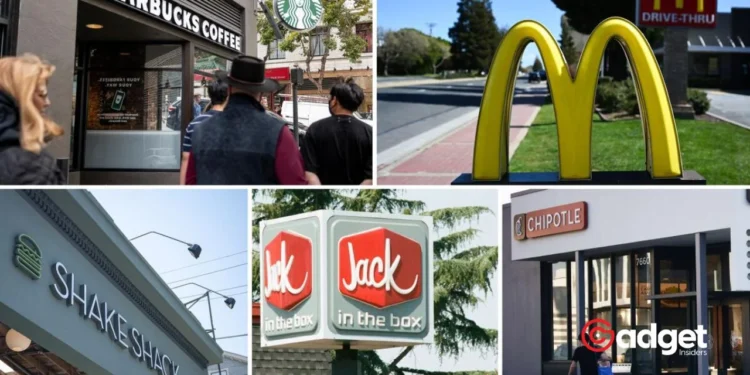California’s decision to implement a $20 minimum wage for fast-food workers last September, signed into law by Governor Gavin Newsom, has caused considerable disruptions within the state’s fast-food industry. Notably, the law has led to the elimination of nearly 10,000 jobs in the sector, and as the new wages take effect, additional job losses and operational changes, such as increased automation and price hikes, are becoming evident.
This shift not only impacts workers and businesses but also reflects broader economic and policy implications.

California: Immediate Impact on Employment
In the months following the enactment of Assembly Bill 1287, about 9,500 fast-food jobs were cut—a stark contrast to the modest 0.2 percent drop in total private employment in the state.
As industry heavyweights like Pizza Hut and Round Table Pizza begin to dismiss nearly 1,300 delivery drivers, the operational strategy leans increasingly towards automation. Chains like El Pollo Loco and Jack in the Box are accelerating the integration of robots for tasks ranging from salsa making to frying.

Rising Prices Amidst Economic Adjustments
The ripple effects of the wage increase are palpable in the pricing strategies at popular chains. Within a month of the new wage implementation, Wendy’s, Chipotle, and Starbucks reported price rises of 8 percent, 7.5 percent, and 7 percent, respectively.
Scott Rodrick, a Northern California McDonald’s franchisee, summed up the industry’s pricing dilemma: “I can’t charge $20 for Happy Meals.”
Legislative Background and Controversies
The legislative journey of AB 1287 is marked by contention and controversy. Originally, the law was perceived as a tool for union leverage, aimed at facilitating the unionization of fast-food workers—a decade-long effort by the Service Employees International Union (SEIU) that has absorbed substantial financial resources without success.
The union’s influence in Sacramento was instrumental in the initial formulation of the law, which was later modified in response to industry pushback and the prospect of a voter referendum.

An odd exemption in the 2023 law, which spares fast-food restaurants that bake their bread from the $20 wage requirement, has stirred further debate.
This exemption reportedly included to appease Governor Newsom’s political donor who owns several California Panera Bread franchises, has not been convincingly explained by Newsom, leading to criticisms of potential political favoritism.
California Loses Nearly 10,000 Fast-Food Jobs After $20 Minimum Wage Signed Last Fall | Hoover Institution California Loses Nearly 10,000 Fast-Food Jobs After $20 Minimum Wage Signed Last Fall https://t.co/g2CWb6uJF7
— Daniel J. Smith (@smithdanj1) April 26, 2024
Broader Implications for Young Workers and the Economy
The fast-food industry, with 60 percent of its workforce aged 24 or younger, faces unique challenges under the new wage law. Young workers, often in the process of gaining skills and experience, represent a significant portion of the industry’s labor force, which typically experiences high turnover rates exceeding 100 percent annually.
The requirement for increased wages places additional strain on an industry characterized by narrow profit margins, historically ranging from 5 to 8 percent. In light of these developments, the state’s fast-food sector stands at a crossroads, grappling with the dual need to sustain business operations and comply with legislative mandates.
As the industry navigates these turbulent waters, the outcomes of this policy change will likely influence future legislative approaches to wage regulations, both within California and nationally.










